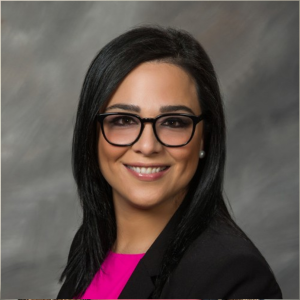Tanya Alonso, Psy.D is a Psychologist who graduated from Carlos Albizu University in 2018. As a seasoned clinician, Tanya has 6 years of experience in the field and is licensed in Florida, and all other states eligible in PSYPACT.
Learn more about Tanya
I enjoy working with older adults for many reasons. They are fascinating individuals who bring a wealth of life experience, often sharing incredible stories that provide both insight and inspiration. These are individuals who have endured challenges, faced life’s ups and downs, and have a unique perspective on the world. I not only teach them but also learn from them. Older adults often possess a great deal of knowledge, and in my experience, they tend to be kind, warm, and generous with their stories.
Another reason I enjoy working with this age group is the stability they bring. If you’ve made it this far in life, it speaks to your strength and resilience. While they may seek therapy for various challenges, many older adults already have the internal resources needed to navigate these difficulties. My role often involves helping them reconnect with those resources, revisiting past coping strategies, or finding new ways to approach challenges. Ultimately, older adults have shown remarkable resilience, overcoming obstacles throughout their lives, which is something I deeply admire.
Online therapy has proven to be just as effective as in-person therapy for many mental health conditions, particularly for older adults dealing with depression, anxiety, adjustment issues, and grief. While online therapy may not be suitable for every condition or every situation, the research supports its efficacy for these common concerns.
In my personal experience as a PSYPACT clinician, many of my patients live in rural areas where access to qualified mental health professionals can be limited, or the available clinicians may be far away. Online therapy removes these geographical barriers, allowing patients to engage in therapy from the comfort of their own homes. Whether they’re in their living room, study, or favorite chair with a cup of tea or coffee, it creates a personalized and relaxed environment that can enhance the therapeutic process.
Additionally, many older adults face medical conditions that limit their mobility or have caregiving responsibilities, making it difficult to leave their homes. For these individuals, online therapy offers a practical solution that saves time and energy. They don’t have to worry about the logistics of driving or finding transportation, which can be a significant challenge for those with physical limitations or time constraints. Online therapy allows them to focus solely on their mental health, without the added stress of travel. Even for those living in urban areas, traffic can be a significant obstacle, making the convenience of virtual sessions even more valuable.
My approach to therapy is primarily person-centered, drawing from Carl Rogers’ Rogerian principles. I believe in creating a warm, approachable atmosphere where my clients feel comfortable and valued. I aim to evoke cozy, welcoming vibes during our sessions, fostering a space where people feel safe to express themselves. I also find that humor can be a helpful tool in some cases, and while it’s not always present, I do believe it can add to the ease and connection in our work together.
However, it’s important to remember that every clinician has their unique approach to therapy. What truly matters is the connection you form with your therapist. The therapeutic alliance—the rapport and relationship you build—is vital for therapy to be effective. If my style doesn’t resonate with you, that’s completely okay. It’s important to feel comfortable and open with the person you’re working with. If it’s not the right fit, I always encourage clients to seek out another clinician who might better align with their needs. At Total Life, we have a diverse team of clinicians, and finding the right therapeutic match is key to creating a successful, impactful therapy experience. Once that rapport is built, the real work of therapy can begin, and positive change can take place.
My advice to someone starting therapy for the first time is to approach the process with an open mind. If you come in with very specific expectations about what therapy should look like or how it should unfold, you might find that reality doesn’t always align with those ideas. Being open to the experience, however it presents itself, is key. Additionally, I would encourage bravery. Starting therapy can be a daunting step, especially for individuals struggling with anxiety. The act of making that first call or taking the initiative to seek help can be incredibly overwhelming. But being brave enough to start the process is a huge accomplishment in itself. Remember, the goal is to work through challenges and ultimately feel better.
Patience is also crucial. Sometimes, it takes time to find the right clinician, and you may not click with the first person you see. That’s okay—it’s not a reflection of therapy as a whole. If that happens, don’t be discouraged. Keep trying, be brave, and eventually, you’ll find a therapist whose approach aligns with you, and that’s when the real progress can begin.
Therapists Who Understand Aging
Have Hope After Three Sessions
After three sessions a majority of clients have hope that their situation is improving.
YOUR THERAPIST IS A CLICK AWAY
Start Your Journey Towards Better Health

Reach out to us through our website or by phone. We’ll verify your Medicare coverage to see if you qualify for free therapy sessions.


After discussing your needs, we recommend one of our experienced therapists and schedule your first appointment.


Therapists Who Understand Aging
See Change After Six Sessions
After six sessions a majority of clients have reflected that actual change occured.


